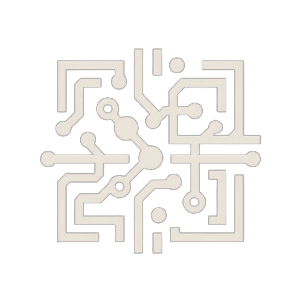Digital HUB is an open online community of financial and data science professionals pursuing practical applications of AI in their everyday functions. Digital HUB community provides expert, curated insights into financial applications of Generative AI, Large Language Models, Machine Learning, Data Science, Crypto Assets and Blockchain.
A key focus for The Digital HUB publication is to provide best practices for the safe deployment of AI at scale such as: assessing the ability to execute, determining an organization’s digital DNA, fostering skill development, and encouraging responsible AI.
Digital HUB is an open online community of financial and data science professionals pursuing practical applications of AI in their everyday functions. Digital HUB community provides expert, curated insights into financial applications of Generative AI, Large Language Models, Machine Learning, Data Science, Crypto Assets and Blockchain.
A key focus for The Digital HUB publication is to provide best practices for the safe deployment of AI at scale such as: assessing the ability to execute, determining an organization’s digital DNA, fostering skill development, and encouraging responsible AI.
There is no question that when it comes to the process of democratizing educational opportunities, the internet has delivered in spades, often through massive open on-line courses (MOOCs) offered by universities, organizations and individual instructors. These courses can offer work-at-your-own-pace flexibility, efficient information delivery, and broad reach to anyone with an internet connection. From the mysteries of quantum foam to making art in cappuccino foam, lectures, lessons, and indeed entire courses on virtually everything can be found on-line, often at low or no cost.
It’s a good thing, too, because we need educational opportunities as rapidly advancing technology across virtually all industries necessitates a constant refreshing of existing skills and the acquisition of new ones. This is particularly true in finance, where the industry, always data-hungry and analytics-based, is now coping with an explosion of data and new technologies amidst a backdrop of intense competition, a volatile market environment and compressing fees. However, while the need and desire to leverage technology such as A.I. and Machine Learning is particularly acute in the industry, most financial institutions see an extensive skills gap in where they want to go with these technologies and what their workforce is ready to deliver.
For example, for the Financial Services Industry, according to the World Economic Forum 2020 “Future of Jobs” survey, the 3 biggest barriers to the adoption of new technology in financial services are:
- skills gaps in the local labor market (59%),
- inability to attract specialized talent (51%), and
- skills gaps among organization’s leadership (49%).
At the same time, over 90% of financial services firms surveyed indicated they have implemented or will implement advanced data-centric technologies such as Artificial intelligence and “Big Data” Analytics within the next 5 years, leading to a supply-demand imbalance for technologically savvy domain experts in the market.
Now, enter the MOOCs – combining the flexible and readily available technology skill acquisition offered by MOOCs with the large skills gap in finance (and indeed, all industries) should be a match made in heaven, right? Sadly, the truth of the situation is a bit more complicated, because while MOOCs of all sorts are awesome at getting people to start their courses, they are decidedly weaker at getting people to finish them. How much weaker? Estimates vary, but as an example, Forbes Magazine, citing an MIT study, indicates that all courses on edX by MIT and Harvard in 2017/2018 saw a completion rate of only 3.13%!
So, what causes this disconnect between what is ostensibly a self-selected group of candidates who clearly see a need for and have a desire to complete a particular MOOC, and their abysmally low graduation rate? There may be relatively benign reasons for some of this gap. Low barriers to taking most MOOCs may mean that many participants who, in a more traditional educational environment would be shopping around for the right course, instead simply sign up to evaluate their interest then quit if they don't like it. It’s also possible that many users are looking for only specific subsets of the course and leave it once those are completed. However, in our view, this is not sufficient to explain the gap between those who join and those who finish a course.
To us, the biggest problem is that MOOCs are often not well structured functionally. They are designed to impart certain theory, not make you suitable for specific job roles. As a very large number of students and practitioners look at skill-based MOOCs as a means to an end in terms of job retention or improvement of job prospects, a large gap in theory and practice often opens. General theory and skills are very useful, but much less useful than learning how to combine those skills with specific domain knowledge to see how to solve problems of the sort the candidate is likely to encounter.
For example, Python is great to learn, but in our view, you won’t really be able to apply it effectively to financial services problems without understanding not only issues in finance but also having some practice of deploying it in that context.
Since many MOOCs are stand-alone in a particular skill, and not integrated into a broader set of courses, they are often not able to deliver the full skill set needed to do a particular job well. Closely related to this is a lack of community and feedback in many MOOCs. While the ability to access lectures and problem sets from world-class teachers is compelling, if you never receive any feedback, and have no support while taking the class, success, in our view, is much more challenging. While many MOOCs do offer learning support, this often comes at an increased cost, and depending on the instructor and program, the quality of such support varies. Similarly, while some MOOCs do a good job of integrating fellow students together into a mutually supportive body, the transitory nature of many participants makes this difficult in many courses. Without the ability to understand where mistakes are being made, or to advance beyond a particular level without asking questions of instructors or classmates, students can be left demotivated, negatively impacting the completion of many MOOCs in our view.
Summary and Takeaways:
What we believe the financial services industry needs today is a new learning paradigm that combines the following elements:
- The flexibility, reach and time efficiency of MOOCs for delivering the basic theory,
- The integration of cases and other exercises that leverage domain knowledge,
- Laser focus on providing an integrated skill set calibrated to particular job roles, and
- A robust, supported community that provides Q&A, skills advice, real life problems and data sets, and other information to its participants.
To us, this looks like a primarily online, modular learning program providing a high degree of focus and flexibility, integrated into a job-specific path that includes all important skill sets for a particular role. In addition, these skills need to be placed in context with applied learning problem sets that force the application of general skills to particular finance-based problems. Also essential are the group-based labs and communities where teams work together to solve cutting edge problems faced by real financial services firms.
We recognize that right now this integrated approach doesn’t exist in the financial industry. However, at the FDP Institute, we are striving to take our engaged membership and world-class curriculum, and make our offerings broader, more useful and more inclusive—a lofty vision requiring the support of our community.

